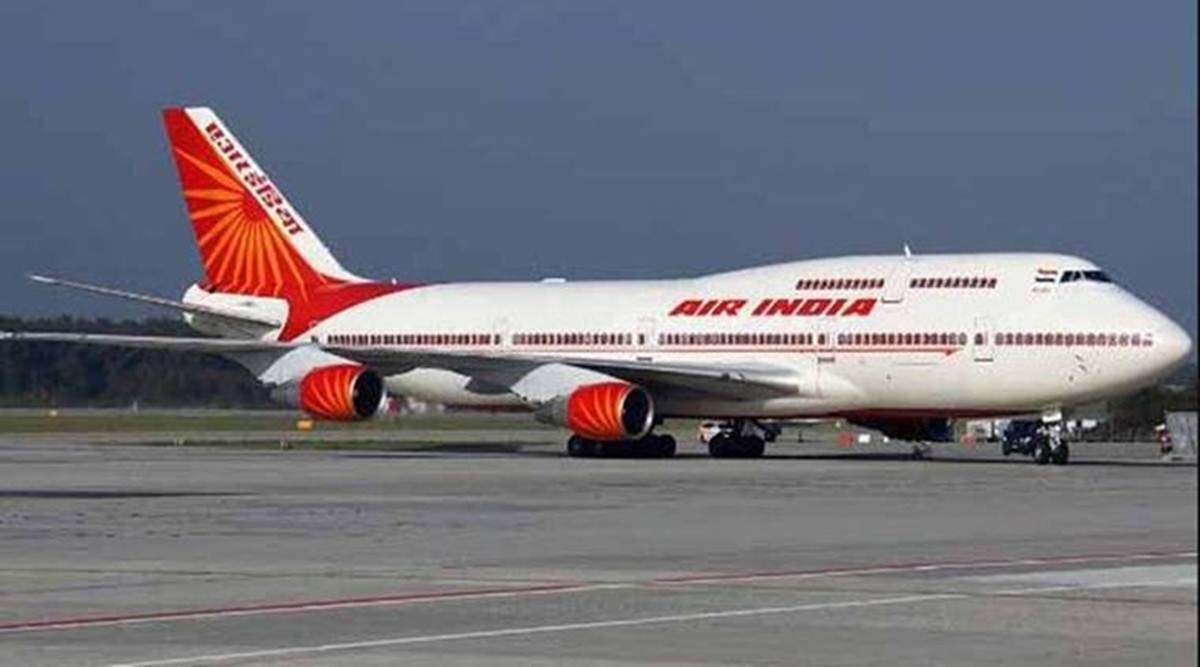After days of silence following the tragic Air India crash, Shantanu Naidu, the trusted manager of Ratan Tata, has finally spoken about the future of the Tata Group and its stance in the aftermath of the incident that shook the nation. His carefully chosen words have resonated deeply within the aviation industry, raising questions about accountability, corporate responsibility, and the emotional toll such events take on leadership.
The Tata Group, which took over Air India with a vision of restoring its former glory, is now under the spotlight as the nation watches how the conglomerate manages this crisis while ensuring the safety, trust, and well-being of passengers.
A few weeks ago, Air India experienced a devastating incident that led to multiple casualties and sent shockwaves across India’s aviation sector. The tragic event prompted regulatory bodies to investigate, raising concerns over safety protocols, technical checks, and management oversight.
For Tata Group, which has taken immense efforts to revive Air India, the crash was not just a corporate crisis but a deeply personal tragedy. Ratan Tata, known for his humane leadership, reportedly expressed his condolences privately to the affected families, and the organization has remained focused on cooperating fully with investigations.
Shantanu Naidu is more than just an executive at Tata; he is often described as Ratan Tata’s right hand and mentee. Known for his compassionate leadership, youthful perspective, and commitment to social responsibility, Shantanu has been instrumental in driving many people-centric initiatives within Tata Group, including animal welfare projects and employee engagement programs.
In times of crisis, the presence of such leaders becomes even more significant as they bring empathy to the corporate world while ensuring operational stability.
Breaking his silence, Shantanu Naidu stated:
“The tragedy that struck Air India is a deep wound for the entire Tata family. We are grieving with the families who lost their loved ones and are working tirelessly to support them. Our commitment to the safety and trust of every passenger flying with us remains unwavering, and we will take every step necessary to ensure such incidents do not happen again.”
His statement carried three clear messages:
✅ Accountability: Tata acknowledges the gravity of the incident and its impact on people’s lives.
✅ Commitment to Safety: There will be renewed efforts in safety audits, technical checks, and crew training.
✅ Support for Families: Tata Group has initiated support systems for the families of victims, including counseling and financial aid.
Post-crash, the Tata Group has implemented a three-layer response strategy:
1️⃣ Immediate Response:
Coordination with rescue teams and aviation authorities.
Providing medical assistance to survivors.
Offering emotional and logistical support to affected families.
2️⃣ Investigation and Cooperation:
Full cooperation with DGCA and independent investigators.
Conducting internal technical and operational audits to identify gaps.
Ensuring transparent communication with stakeholders.
3️⃣ Long-Term Measures:
Upgrading aircraft maintenance protocols.
Enhancing crew training for emergency preparedness.
Collaborating with global safety experts to adopt best practices.
Shantanu Naidu’s statement reinforced Tata’s commitment to these steps while focusing on the emotional healing of the organization and the families affected.
The public’s reaction to the crash was a mixture of grief and concern. While many expressed condolences, there was also anxiety about the safety of Indian airlines. However, Shantanu Naidu’s heartfelt and responsible communication has reassured many passengers about Tata’s commitment to safety and transparency.
Industry experts noted that the Tata Group’s swift action post-incident could set a new benchmark for crisis management in Indian aviation, showing how corporates can handle tragedies with empathy while prioritizing structural improvements.
Although Ratan Tata did not issue a public statement, insiders report that he has been personally involved in monitoring the situation and guiding senior management. Known for visiting victims and personally overseeing crisis management during past tragedies, Ratan Tata’s leadership continues to inspire the group, with Shantanu Naidu acting as a bridge between Tata’s vision and operational execution.
The Tata Group’s acquisition of Air India was seen as a turning point for the airline, aiming to restore its reputation as a trusted carrier. The crash is a setback, but industry analysts believe it will not derail Tata’s commitment to transforming Air India.
Key initiatives planned for Air India’s revival post-crash:
✈️ Comprehensive fleet safety inspections and modernizations.
✈️ Introduction of advanced training programs for pilots and crew.
✈️ Better passenger grievance redressal systems.
✈️ Focus on mental health support for crew and ground staff after the traumatic event.
These steps are crucial in ensuring the airline rebuilds passenger trust while aligning with global aviation safety standards.
Shantanu Naidu, known for bridging emotional intelligence with corporate strategy, will play a pivotal role in ensuring that the Tata Group remains people-focused while executing operational improvements.
Potential focus areas under Shantanu’s guidance:
✅ Employee wellness programs, particularly for Air India staff dealing with trauma.
✅ Transparent updates for the public on safety improvements.
✅ Community engagement initiatives to support aviation safety awareness.
His proactive communication style and empathetic approach are already receiving appreciation within the organization and among stakeholders.
While numbers and technicalities often dominate discussions after such tragedies, Shantanu Naidu’s approach reminds us of the human element in corporate crisis management:
🌻 Acknowledging grief openly.
🌻 Taking accountability without deflection.
🌻 Supporting families and employees emotionally and financially.
🌻 Ensuring long-term changes, not just temporary fixes.
This humane approach is essential for rebuilding trust with passengers and employees, ensuring Tata Group emerges stronger and more responsible.
The Air India crash was a tragedy that left deep scars, but Shantanu Naidu’s statement offers a glimmer of hope that the Tata Group will prioritize safety, accountability, and compassion in its response.
While the road ahead for Air India and Tata Group in the aviation sector will have challenges, this incident serves as a crucial reminder of the responsibilities corporates hold towards the lives they impact.
Passengers, stakeholders, and the public will be watching how the Tata Group transforms this crisis into an opportunity for lasting change, ensuring that safety and empathy become the cornerstones of India’s aviation future.
News
A Mother Beyond Blood: Mahhi Vij Opens Up About Raising Khushi and Rajveer Like Her Own Ask ChatGPT
Sometimes, it’s not blood that defines family, but love, compassion, and the willingness to open your heart when it’s least…
The Nurse Facing Execution in Yemen: Nimisha Priya’s Fight for Life and Justice
Nimisha Priya’s story is one that shakes the soul—a tale of courage, desperation, and the harsh realities faced by many…
At 90, Dharmendra Finds Solace in Farming Away From Family: A Look Into His Peaceful Farmhouse Life
At 90 years old, Bollywood legend Dharmendra has chosen a life far removed from the hustle and bustle of Mumbai’s…
New Love or Just Lights, Camera, Action? Rumors Swirl as Shefali Bagga and Faisu Spark Dating Buzz
Social media has been buzzing with speculation, curiosity, and a fair bit of confusion after internet star Faisal Shaikh—better known…
Once a Star, Now Forgotten: Beloved TV Actress Found Disoriented on Streets of Bengal
In a heartbreaking twist of fate, a once-famous face from Bengali television and film has resurfaced under circumstances that have…
A Father’s Confession: The Shocking Truth Behind Radhika Yadav’s Murder
When the news broke that 25-year-old tennis prodigy Radhika Yadav had been killed by her own father, the nation reeled…
End of content
No more pages to load
















